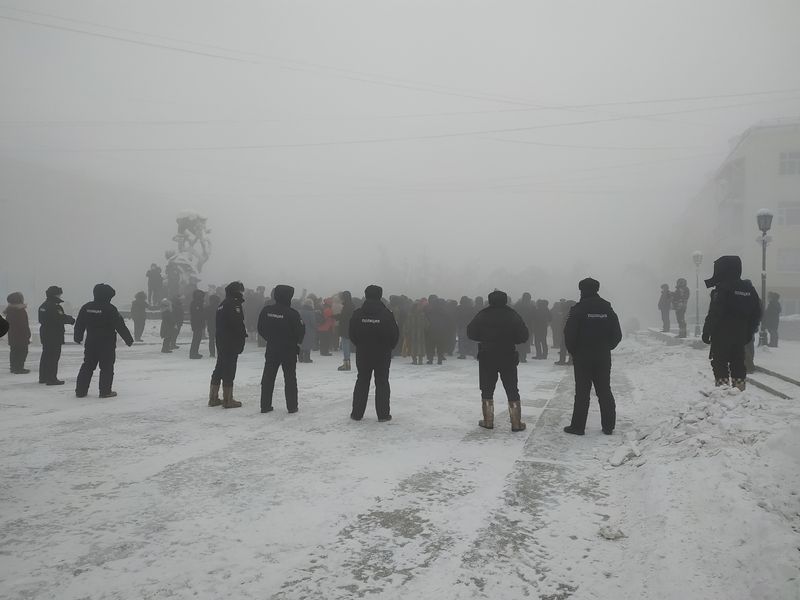By Gabrielle Tétrault-Farber
MOSCOW (Reuters) - It will be around minus 40 degrees Celsius (-40 Fahrenheit) on Sunday as some Russians in Yakutsk, one of the world's coldest cities, join nationwide protests against the jailing of Kremlin critic Alexei Navalny.
It was -52C when they took to the streets last weekend.
"You always have to dress in a sort of spacesuit," said Niurgun Semenov, a 26-year-old who protested last weekend. "It's like going out into outer space. It's extreme."
Eastern Siberia's Yakutsk, a city of more than 300,000 people, was the scene of a small opposition street rally on Saturday as around 150 people paced up and down for warmth in a white, glacial haze. Police detained around 30 people.
It was one of dozens of rallies that involved tens of thousands of people across Russia calling on authorities to release Navalny from jail.
Police said the rallies were illegal and detained over 4,000 people, according to a monitoring group. The police have not given an official number.
Navalny's allies plan to stage a new round of protests in more than 80 cities this Sunday, including in Yakutsk, which is built on permafrost.
Many protesters wrapped themselves up in three or four layers of thermal clothing and wore traditional fur boots known as unty, breathing through their scarves so as not to lose body heat, Semenov said.
He said he was shocked by Navalny's treatment, and that his return to Russia despite the threat of immediate arrest had become an inspiration.
Sulustaana Myraan, a former lawmaker in the regional legislature, was among those detained last weekend.
Myraan, who resigned as a lawmaker last year to protest against constitutional reforms allowing Putin to potentially extend his rule until 2036, said she had not yet decided whether to protest again so soon after her detention.
She fears such a move could prompt the authorities to open a criminal case against her, she said.
Myraan said protest turnout was likely to be depleted after last weekend's detentions, but that the frigid temperatures were unlikely to keep people away.
"In theory the authorities should be interested in people being healthy, that they live a decent human life," she said. "But this is not happening. This means people are forced to go out on the streets in the freezing cold."
